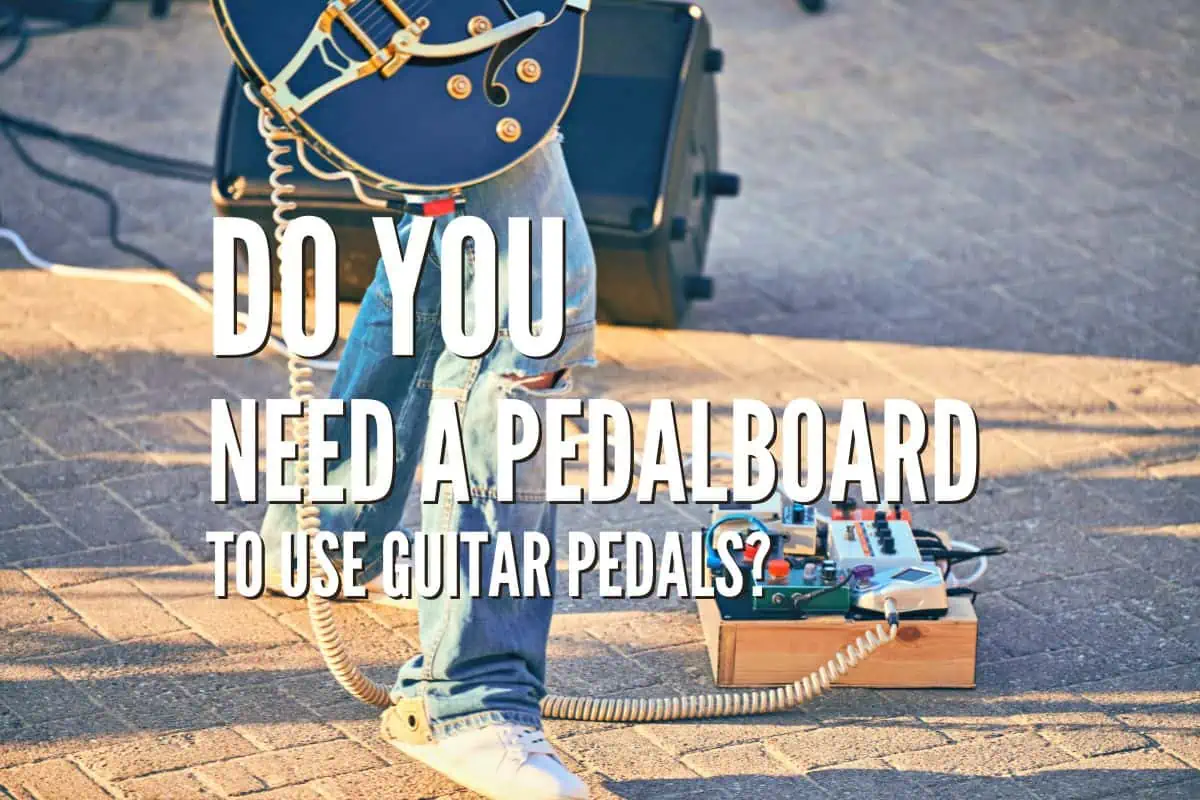Guitar pedals can transform your sound and performance to new levels, opening the doors of new tonal horizons. When you see most professional musicians use multiple pedals on stage, you can notice that they use a pedalboard, which helps them keep all the pedals in one place. Do you also need a pedalboard to be able to use guitar pedals?
You don’t need a pedalboard to use guitar pedals, especially if you only have a few; you can use every pedal individually with no problem. However, a pedalboard is helpful because it helps you organize multiple pedals, is easy and quick to set up, and can help protect your pedals from damage.
In the rest of this article, I will explain more about pedalboards and why they are not essential for your typical setup. Moreover, I will also present some advantages of pedalboards and what to keep in mind if you choose to refrain from using them during your performances.
Are Pedalboards Necessary To Use Guitar Pedals?
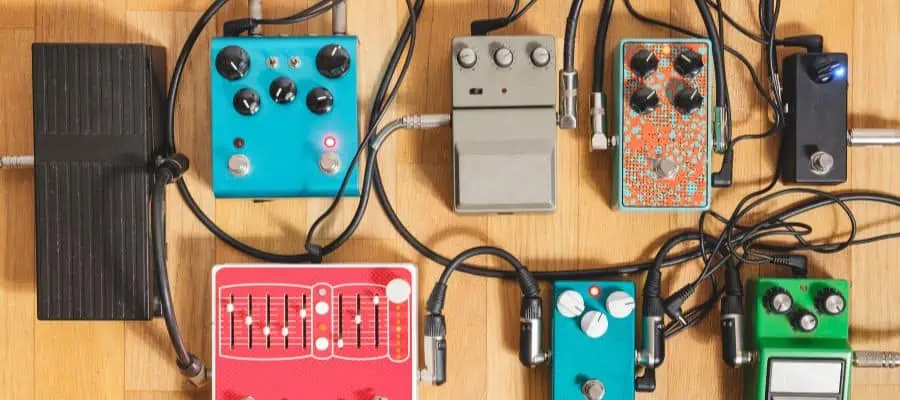
A pedalboard is a platform for placing your pedals on while performing and for easier carry. However, it’s not just a flat board where you can secure your pedals; some also provide a secure power source for all the different pedals and a patch panel. These boards can be incredibly useful for several reasons.
However, a pedalboard is not necessary for using guitar pedals. Plenty of amateurs and even professional musicians use the pedals individually without placing them on a board. Pedals are made to be used individually and don’t require any additional accessories to function.
You can simply place the pedals on the ground individually and use them as you see fit when performing. You just need to ensure that every pedal is connected to power and between each other. A pedalboard is not necessary, especially if you only have one or two pedals that you use. If you have multiple, it would be more helpful, but it would still be unessential.
Advantages of Pedalboards
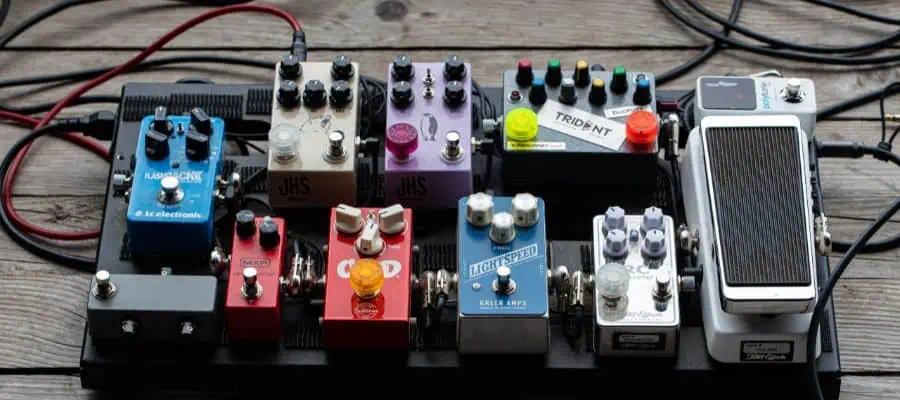
Even though pedalboards are not necessary to use pedals, they can still be very beneficial, especially when you’re performing live on stage. Here are some advantages of pedalboards that you need to consider:
- Pedalboards help you organize your pedals. As mentioned above, they provide a neat space to place every pedal, reducing clutter on the stage. You can move more freely during your performance and always know where your pedals are.
- Pedalboards are portable. If you’re moving from one gig to another, pedalboards will make your life much easier because they allow you to carry all your pedal sets ready to use in a case.
- Pedalboards will save you a considerable amount of time. Setting up every single pedal individually can be a hassle because you need to deal with their placement and connections one by one; a pedalboard saves a lot of time because it has all the pedals readily located, and some pedalboards even have them stabilized and powered.
- Pedalboards ensure that your pedals last longer. While pedals are made to be stepped on and endure a lot of pressure, they can still wear out quickly when moved around and fiddled with. A pedalboard can extend the life of your pedals by protecting them from external conditions.
- Pedalboards allow you to access your pedals easily and organize them as you wish. Using a board, you can place every pedal wherever you want and easily access it whenever you want.
Disadvantages of pedalboards
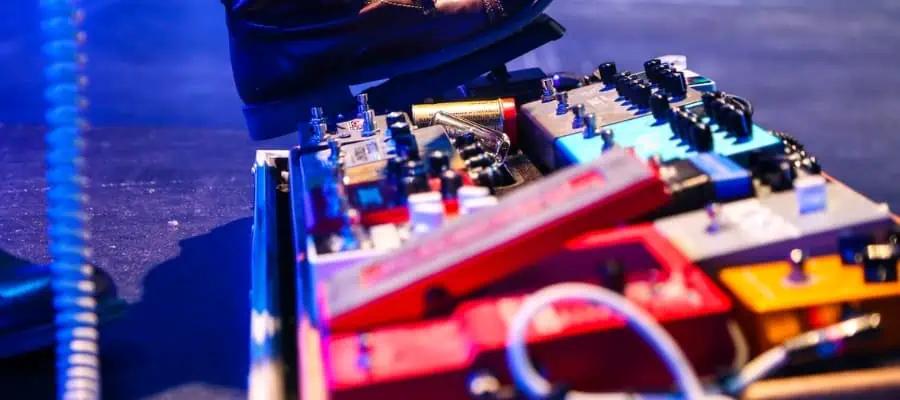
Although pedalboards are mostly beneficial and most professionals recommend using them, some potential advantages may make you reconsider getting one.
- Pedalboards can be expensive. They range in price, but the excellent quality boards that offer many options may set you back quite a bit. The ones with multi-power outlets can go relatively high in price.
- Pedalboards have a limited amount of space. Pedalboards have a fixed layout, which makes it difficult to add new pedals to the chain if you are out of space.
- Pedalboards can get really heavy. It depends on the material it is made of and the pedals you put on it. But it can easily go up to 50 pounds (22 kg).
When You May Need a Pedalboard
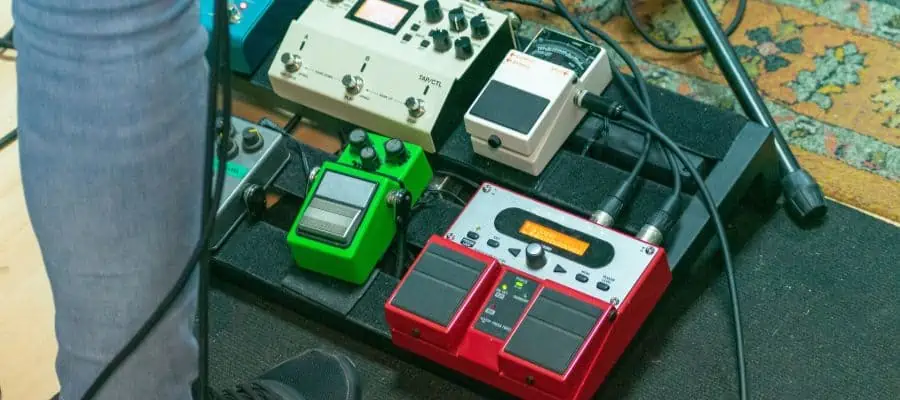
While pedalboards are great and can be extremely helpful, they are not always necessary. For instance, if you’re a beginner practicing at home, you don’t need pedals since you will not be moving around like you would on stage. However, there are certain cases when the pedalboard might be necessary.
Consider investing in a pedalboard if:
- You perform on stage regularly and must constantly pack and unpack your guitar pedals.
- You are recording in a studio and want to experiment with different tones and add new textures, testing different pedal configurations on an existing pedal chain.
- You’re practicing with your band and want to keep the pedals secure. A board can help keep your pedals safe as you practice continuously and move around.
- You’re not performing on stage, but you want to organize your pedals as neatly as possible.
- You often move with your pedals and want an easier way to manage them than prepare them individually each time.
What To Keep in Mind if You Are Not Using a Pedalboard
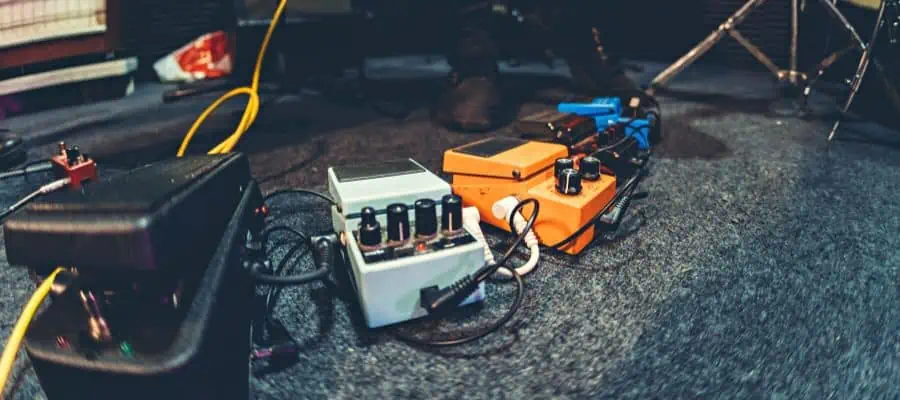
If you have decided not to invest in a pedalboard, you can still practice and perform very well; you just need to remember certain things that can make your life easier. Here are some extra tips to keep in mind if you’re not using a pedalboard:
- Use solid connectors to connect all the pedals to one single power supply to save the hassle and hazard of using multiple connections.
- Use duct tape to keep the power adaptors in place using multiple pedals, especially during a live performance.
- If you don’t want to spend too much money on a pedalboard, consider DIY from materials you can buy at a hardware store.
Nevertheless, these methods are less effective than the actual pedalboard, so consider investing in a cheap one to help you set up more quickly and be more organized.
DIY Pedalboard
You can also make your own pedalboard easily if you put time and effort into it. This way, you can save quite a lot of money and have your own customized pedalboard. Of course, this will be a basic organizer-style pedalboard, but you can always buy a multi-power pedal adapter to make it even more advanced.
Here are some guides to follow or get you inspired to create your own pedalboard.

Final Thoughts
Pedalboards are great tools that help you stay organized while performing on stage. They keep all your guitar pedals secure and connected to a single power source, saving much time and effort during setup. They can also extend the life of your pedals.
However, pedals are not essential, so you can easily use your guitar pedals without a board. You may have issues with setup and clutter, but you will be able to play nonetheless. If you perform regularly and have to set up and pack your pedals continuously, a pedalboard is more than a great idea to have!
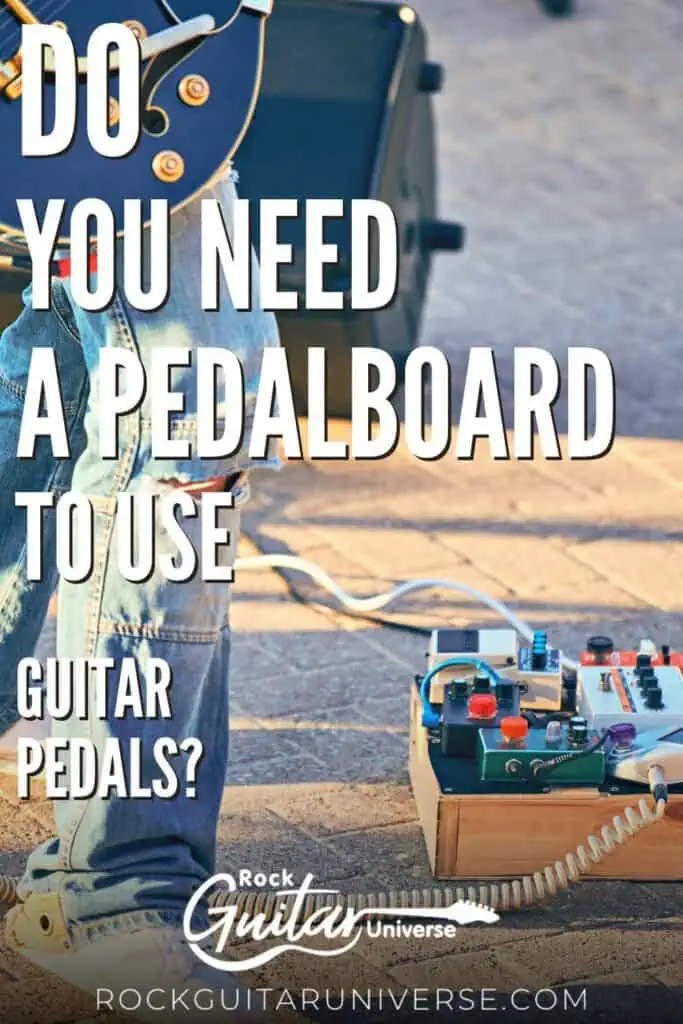
Recent Posts
Some guitarists insist on buying an expensive amplifier with their electric guitar. They assume that this is a must for every type of guitarist out there. However, in some situations, this isn’t...
Top 50 Free Realistic Guitar VST Plugins With Sound Examples
As technology has rapidly advanced in the recent decade, computers are stealing more and more roles from physical musical instruments and accessories. Nowadays, you do not need expensive amps,...

